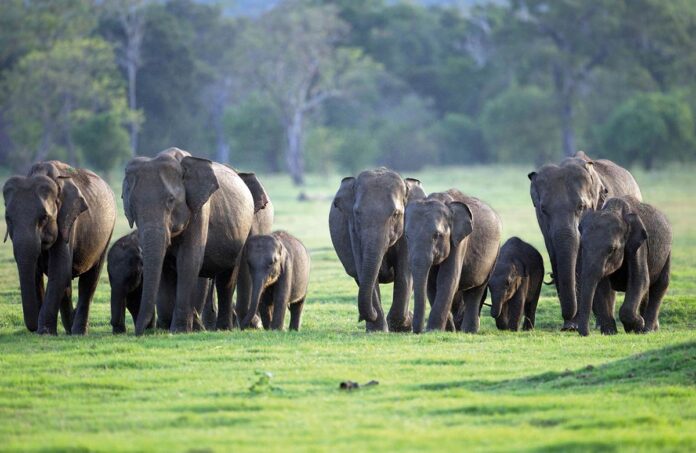July 24, Colombo (LNW): Concerns are mounting over the welfare of Sri Lanka’s wild elephant population, as officials confirm that at least 20 injured elephants are currently undergoing treatment in wildlife zones across the country.
The majority of these animals have reportedly suffered injuries to their legs, primarily caused by gunshots or by becoming ensnared in traps—both believed to be the result of human activity.
The Department of Wildlife Conservation, which oversees the treatment and protection of the country’s wildlife, has disclosed that eight of the injured elephants are receiving care in the Anuradhapura region, with four in Polonnaruwa, three in the Northwestern zone, and five in the Uva province.
Veterinary teams are working under challenging conditions to stabilise and rehabilitate the animals, many of which have sustained serious trauma.
The scale and nature of the injuries have sparked concerns about the increasing frequency of human-elephant conflict and the potential involvement of illegal wildlife harm. In response, the Department’s Director General, Ranjan Marasinghe, has formally appealed to the Inspector General of Police, urging law enforcement to provide forensic and technical support to investigate three recent elephant deaths reported from the Digampathaha area.
Early indicators suggest that these deaths may not be isolated incidents. Speaking at a press conference held on 23 July, prominent animal rights advocate Venerable Pagoda Janithawansa Thera alleged that a coordinated network may be behind the targeted killing of elephants in certain regions. He called for immediate government intervention and tougher enforcement against those who harm wildlife for personal or commercial gain.
The situation has sparked a renewed dialogue among conservationists and policymakers about the urgency of reinforcing protective measures for Sri Lanka’s elephant population, a species considered both culturally significant and ecologically vital. Proposals on the table include expanding wildlife corridors, increasing patrolling in high-risk areas, and implementing harsher penalties for illegal hunting and trapping.

